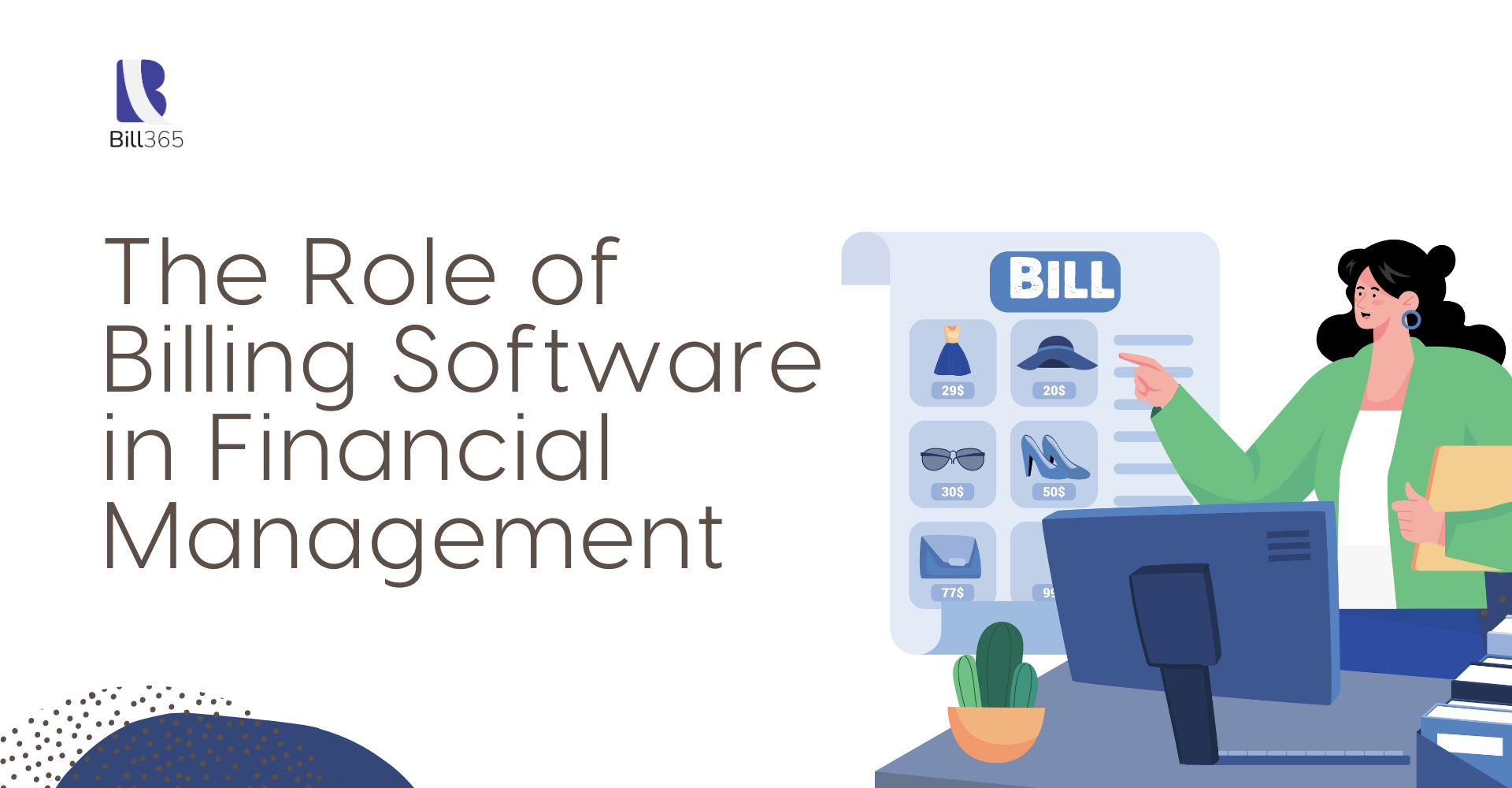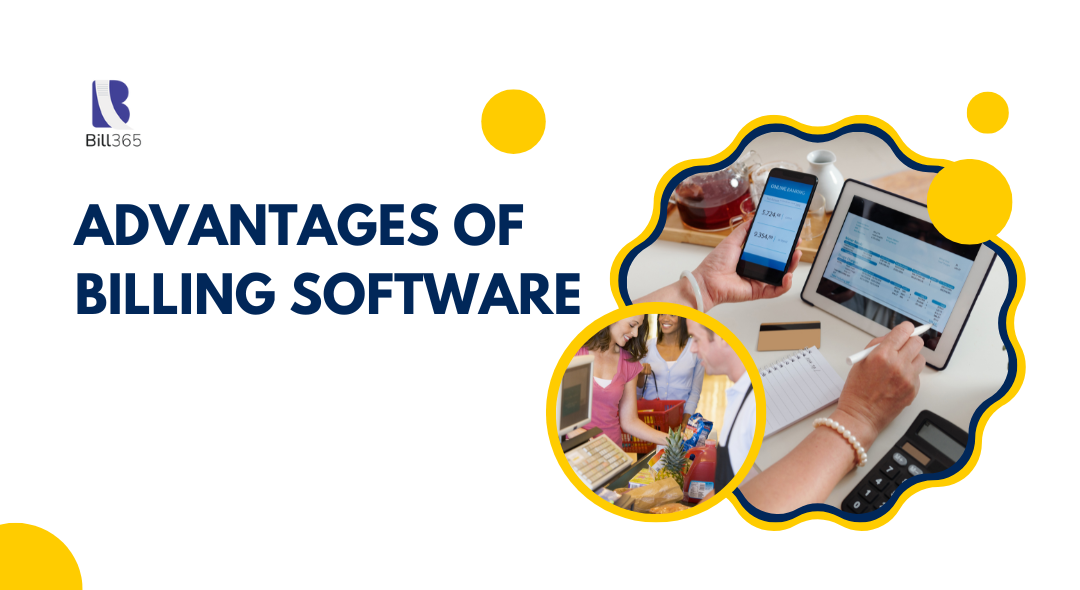
The Role of Billing Software in Financial Management
Whether you have a big enterprise or small business, managing financial department is not an easy task. Why hiring multiple people when you utlize billing software to manage the entire business finance seamlessly. The role of billing software in financial management is versatile. From improving cash flow management to faster payment all you get in effective billing software.
Billing software plays a critical role in automating the billing process, improving accuracy, enhancing customer satisfaction, and providing valuable insights into a company’s financial health. This article delves into why billing software is vital, the benefits it offers, and how it contributes to better financial management.
Why Billing Software is Important?
Billing software is no longer a luxury; it has become a necessity for modern businesses. As companies grow, manual processes become inefficient, prone to errors, and consume valuable time that could be used for other business-critical activities. Billing software automates this process, ensuring businesses can operate smoothly, manage cash flow more effectively, and avoid the pitfalls of human error.
Efficiency and Accuracy
Manual billing processes often lead to mistakes that can affect cash flow, customer relations, and compliance with regulatory requirements. Billing software helps reduce these errors by automating the process, allowing for more accurate and timely invoicing. Automation ensures that bills are calculated correctly and sent out on time, minimizing the chances of missed payments or discrepancies.
Time-Saving
Automating the billing process saves significant time. What would take hours or even days to complete manually can be accomplished within minutes with the right software. This time-saving allows businesses to focus on core operations, strategic decision-making, and customer service, rather than getting bogged down with administrative tasks.
Customer Satisfaction
Billing software can enhance the customer experience by ensuring that invoices are sent promptly and that they are easy to understand. When customers receive accurate bills on time, it fosters trust and satisfaction, which is crucial for maintaining long-term business relationships. Many billing systems also offer features like online payment options, which further improve customer convenience.
Regulatory Compliance
Billing software often includes features that help businesses comply with tax laws, accounting standards, and industry-specific regulations. By automating tax calculations and keeping accurate records, companies can avoid costly penalties for non-compliance. This feature is especially valuable in industries with complex regulatory environments, such as healthcare, finance, and retail.
Benefits of Having Billing Software
Billing software offers a range of benefits of billing software that go beyond just automating the invoicing process. From improving cash flow management to offering comprehensive financial reporting, the advantages are numerous.
Streamlined Invoicing Process
With billing software, businesses can create, send, and track invoices in a streamlined manner. Automation not only makes the process faster but also more organized. Many billing solutions allow for the creation of customized invoices that align with a company’s branding, ensuring professionalism in every transaction.
Improved Cash Flow
Efficient billing leads to quicker payments, and when businesses get paid faster, it improves their cash flow. Some billing software comes with built-in features like automatic payment reminders and online payment integration, which encourages customers to pay promptly. Better cash flow means that businesses have more liquidity to invest in growth and other financial commitments.
Financial Reporting and Analytics
One of the standout features of modern billing software is its ability to provide detailed financial reports. These reports can offer insights into customer behavior, outstanding invoices, sales performance, and more. This data is invaluable for making informed business decisions and forecasting future trends. The ability to generate real-time reports helps companies stay on top of their financial status, ensuring they are prepared for any potential challenges.
Scalability
As businesses grow, so do their billing needs. Billing software is often scalable, meaning it can grow with the company. Whether a business has ten clients or ten thousand, billing software can handle the volume with ease. This scalability makes it a cost-effective solution, as businesses don’t need to invest in new systems as they expand.
Customization and Flexibility
Many billing solutions offer customization options to meet specific business needs. This flexibility allows companies to set up recurring invoices, manage different pricing models, and integrate with other financial systems like accounting software or customer relationship management (CRM) tools. Customization ensures that the software adapts to the business, not the other way around.
Multi-Currency and Tax Management
For businesses that operate in multiple regions, billing software offers multi-currency and tax management features. This makes it easier to handle international transactions and stay compliant with various tax laws. By automatically calculating taxes and handling currency conversions, businesses can save time and reduce the complexity of cross-border invoicing.
Advantages of Billing Software in Financial Management
Billing software plays a pivotal role in enhancing financial management by improving accuracy, transparency, and control over financial data. It serves as a critical link between sales and financial records, ensuring that businesses maintain a clear and up-to-date view of their finances.

Accurate Financial Records
One of the primary advantages of billing software in financial management is its ability to generate accurate records. Invoicing errors, which can lead to disputes, lost revenue, and compliance issues, are minimized through automation. Accurate records are essential for audits, financial planning, and maintaining trust with stakeholders.
Better Cash Flow Management
As discussed earlier, timely invoicing leads to quicker payments. Billing software allows businesses to monitor outstanding invoices and send automated reminders, and you will get payment on time. By improving cash flow management, businesses can better plan for future expenses and investments, preventing cash shortages.
Enhanced Financial Reporting
Financial reporting is crucial for understanding the financial health of a business. Billing software provides comprehensive reporting capabilities, allowing businesses to analyze revenue, expenses, and other key metrics. The real-time nature of these reports ensures that companies can quickly identify issues and opportunities, enabling them to make strategic decisions with confidence.
Integration with Accounting Systems
Many billing software solutions integrate seamlessly with accounting software, creating a cohesive financial management system. This integration ensures that all financial data, from invoices to payments, is accurately recorded in the accounting system. The elimination of manual data entry reduces the risk of errors and provides a single source of truth for financial records.
Improved Budgeting and Forecasting
By providing access to real-time financial data, billing software supports better budgeting and forecasting. Businesses can use historical data to predict future revenue, identify trends, and allocate resources more effectively. This ability to anticipate financial needs and outcomes enables more proactive financial planning, helping companies avoid unexpected financial challenges.
Compliance and Audit-Readiness
Billing software often includes features that help businesses stay compliant with local and international tax regulations. The software automatically calculates taxes, generates tax reports, and ensures that all transactions are properly documented. In the event of an audit, having accurate, organized financial records at the ready simplifies the process and reduces the risk of penalties.
Conclusion
In an increasingly digital world, the role of billing software in financial management has become indispensable. By automating routine tasks, ensuring accuracy, and providing valuable financial insights, billing software helps businesses operate more efficiently and maintain healthy cash flow. The benefits of billing software extend beyond the convenience of automated invoicing—it improves financial reporting, enhances customer satisfaction, supports compliance, and contributes to long-term business growth.
Incorporating billing software into a company’s financial management strategy not only streamlines operations but also empowers businesses to make better financial decisions. Whether a small startup or a large multinational corporation, every business can benefit from the efficiency, accuracy, and control that billing software offers. Investing in the right billing solution is an investment in the future stability and success of the business.
FAQs
1. What is the function of billing in finance?
Billing in finance ensures the accurate and timely collection of payments for goods or services provided. It helps manage cash flow, maintain financial records, and ensure compliance with accounting and tax regulations, ultimately supporting a company’s overall financial stability and operational efficiency.
2. What is the purpose of the billing system software?
The purpose of billing system software is to automate the invoicing process, enhance accuracy, streamline payments, and reduce manual errors. It improves financial management by generating real-time reports, handling tax calculations, and offering seamless integration with accounting systems.
3. What is the purpose of the billing system software?
Billing system software automates invoice creation, tracks payments, and manages customer billing efficiently. It improves accuracy, saves time, and ensures prompt payments, thereby enhancing cash flow and customer satisfaction.
